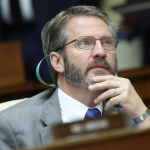Advertisement
Advertisement
After rep. Alexandria Ocasio-Cortez has drawn criticism, sparking intense outrage and rekindling debates over possible legal repercussions for her comments following her post about Trump in which she called him a “rapist”. The congresswoman’s post on X suggested that the denial of access to the Epstein files might have been connected to the election of a “rapist” to the presidency, which sparked the issue while Trump and the civil case against author Jean Carroll, in which a jury held Trump liable for sexual abuse but not rape, seemed to be mentioned in the piece.
Advertisement
The distinction, which was omitted in the congresswoman’s post, quickly became a point of contention online. Users across the platform began highlighting the factual inaccuracy, raising concerns that her statement may have constituted defamation.
Advertisement
Advertisement
Critics noted that despite political differences, a sitting member of Congress making such an unsubstantiated accusation against a former president could trigger legal action. One user suggested that the post resembled libel, while others compared the situation to the lawsuit Trump had previously filed against ABC News host George Stephanopoulos for similar misrepresentation.
Advertisement
Sen. Mike Lee (R-UT) commented on the matter, suggesting that even under the relatively speech-protective standard set by New York Times v. Sullivan, the remarks may have crossed a legal threshold. Legal observers pointed to the high-profile settlement that followed Stephanopoulos’ comments an agreement that included a $15 million donation to Trump’s presidential library and $1 million in legal fees.
Advertisement
Advertisement
Trump allies also responded strongly. Conservative commentator Laura Loomer described the statement as defamatory and expressed hope that the former president would pursue legal action. Legal analyst Phil Holloway echoed the sentiment, arguing that the remarks had gone too far and warranted a legal response.
Ocasio-Cortez’s actions were slammed by White House communications director Steven Cheung, who described them as a last-ditch effort to remain relevant. Cheung claimed that rather than being genuinely concerned with legal accuracy, the congresswoman’s comments revealed a deeper hostility toward Trump.
Advertisement
Advertisement
The incident was not the first time Ocasio-Cortez had been accused of making false statements about Trump. Earlier in the year, she had stated in a video that she would not attend the presidential inauguration because she does not celebrate rapists, a comment believed to have been aimed at Trump, though no clarification was provided.
Media outlets such as The Hill attempted to soften the implications at the time, suggesting there was uncertainty about whom she was referencing. However, many observers noted that the comment was made directly ahead of Trump’s inauguration, leaving little doubt as to the intended target.
While Ocasio-Cortez’s remarks may have drawn praise from some on the far left, they have also reignited calls for accountability, especially in light of repeated efforts by Democratic figures to delegitimize the former president through what critics view as baseless accusations.




16 Comments